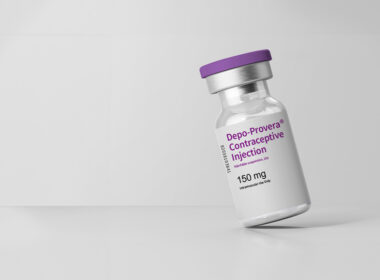A medical malpractice case begins with an event in which a patient believes they were harmed due to a deviation from a standard of care. At this point, you can decide to file a lawsuit against the healthcare provider; however, for the complaint to be legally valid, it needs to be filed within a specific time frame called the statute of limitations.
A medical malpractice lawsuit can be a lengthy process. Still, the following stages are the most crucial: talking to an attorney, obtaining expert medical opinions and certifications, discovery, and settlement or trial (if the healthcare provider disagrees on the compensation the patient is asking for).
Talk to Your Attorney
Before a lawsuit is filed, you should first discuss the situation with an attorney to truly understand the case’s legal perspectives.
Consulting your attorney will allow them to analyze the facts of the case, and better understand how you were injured.
Frequently, a patient isn’t sure whether or not they have a valid case, which is why it is essential to talk to an attorney with experience in the medical malpractice field.
Investigation
To determine whether you have a valid medical malpractice claim, your attorney will investigate all the relevant medical records from doctors, hospitals, or other healthcare organizations.
Your lawyer will also ask for any medical bills related to the incident and for any records that display a certain type of medical history, which may be important to build your case.
There are typically two parties in a medical malpractice lawsuit: the plaintiff and the defendant. Because these legal terms are heavily used throughout a lawsuit, it helps to know what they mean.
What and Who is a Plaintiff?
In a lawsuit, the plaintiff files the lawsuit and brings a claim against another individual or entity. Essentially, the plaintiff is the person suing another person. In medical malpractice cases, the plaintiff is the patient who has been harmed by their doctor and is therefore bringing charges against the healthcare provider. The plaintiff seeks compensation for damages due to the doctor’s negligence.
The plaintiff’s complaint must claim that their health care provider deviated from standard medical practice, which resulted in an injury. (link to other articles done on what medmal is).
What and Who is a Defendant?
The defendant is the individual or organization against whom the lawsuit is filed in a lawsuit. In other words, the defendant is the person who another individual is suing.
In medical malpractice cases, the defendant is the healthcare provider that has potentially caused harm to their patient through some sort of negligence.
Although the patient (i.e., plaintiff) will allege that the doctor deviated from the standard of care that led to an injury, the doctor (i.e., defendant) typically argues that no violation of standard care occurred. All actions taken by the health care provider were lawful.
Expert Medical Opinion
If your attorney has found that you have a valid claim, the attorney will reach out to a medical expert to support your claim, typically a physician in the same field as your doctor.
Although the process differs by state, most states require a certificate of merit or an affidavit from a medical expert that confirms the credibility of your case.
A certificate of merit is essentially just a written letter from a medical expert stating their support of your case. After this certificate or affidavit is obtained, your attorney will go ahead and file a lawsuit in the form of a written complaint.
Discovery
In a lawsuit, discovery is when both parties request the additional necessary information.
During discovery in a medical malpractice case, both your attorney and the defendant will request relevant files, such as medical records, documentation, and other types of evidence.
At this stage, both parties must disclose to each other and the court all the documents they will use throughout the case.
Both parties are interviewed and asked questions under oath by adverse counsel during discovery, which means the other person’s lawyer. This type of questioning under oath is called a deposition (link to other articles on depositions).
In other words, the defendant (i.e., the doctor’s attorney) will depose you (take your testimony) as well as other relevant witnesses related to your case. Likewise, your attorney will depose the doctor to gain more information about whether there was a deviation from the standard of care.
Settlement
Once all the relevant documents and depositions are obtained, both parties will begin to negotiate a settlement. A settlement allows the case to be resolved outside of a courtroom without going to trial, where the outcome may be unknown.
Due to the high cost and lengthy process of going to trial, in some cases, a settlement is ideal for both parties because a jury’s decision is always uncertain.
When negotiating a settlement, the defendant’s lawyer will try to reduce the number of damages. However, if your attorney finds that the defendants have not offered an acceptable settlement, then your attorney will take your case to trial.
In other words, if the healthcare provider doesn’t agree on the settlement the patient can also agree to, the case will move on to trial.
Trial
At trial, both parties present their arguments and introduce all relevant evidence before a judge and a jury. Medical experts hired from both parties, and other relevant witnesses will testify and be cross-examined by the opposing parties.
After hearing arguments from both sides, the jury will decide whether or not the defendant (i.e., the doctor, medical facility, or another medical provider, etc.) deviated from the standard of care and if that deviation harmed the patient.
If the jury decides medical negligence did occur, the jury will also determine the amount of money the defendant has to pay in damages.












